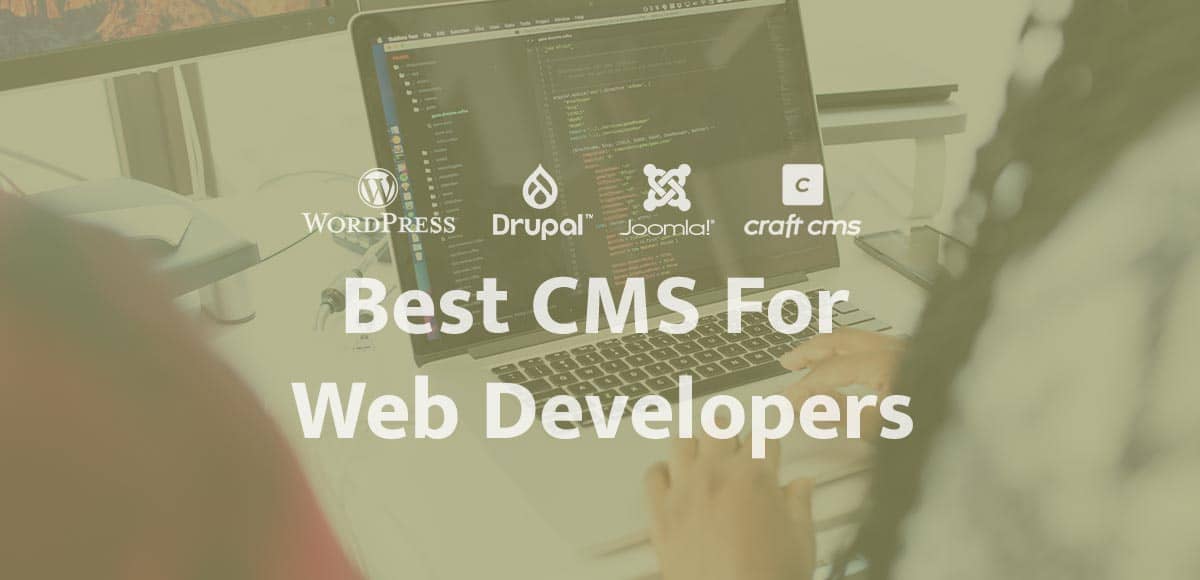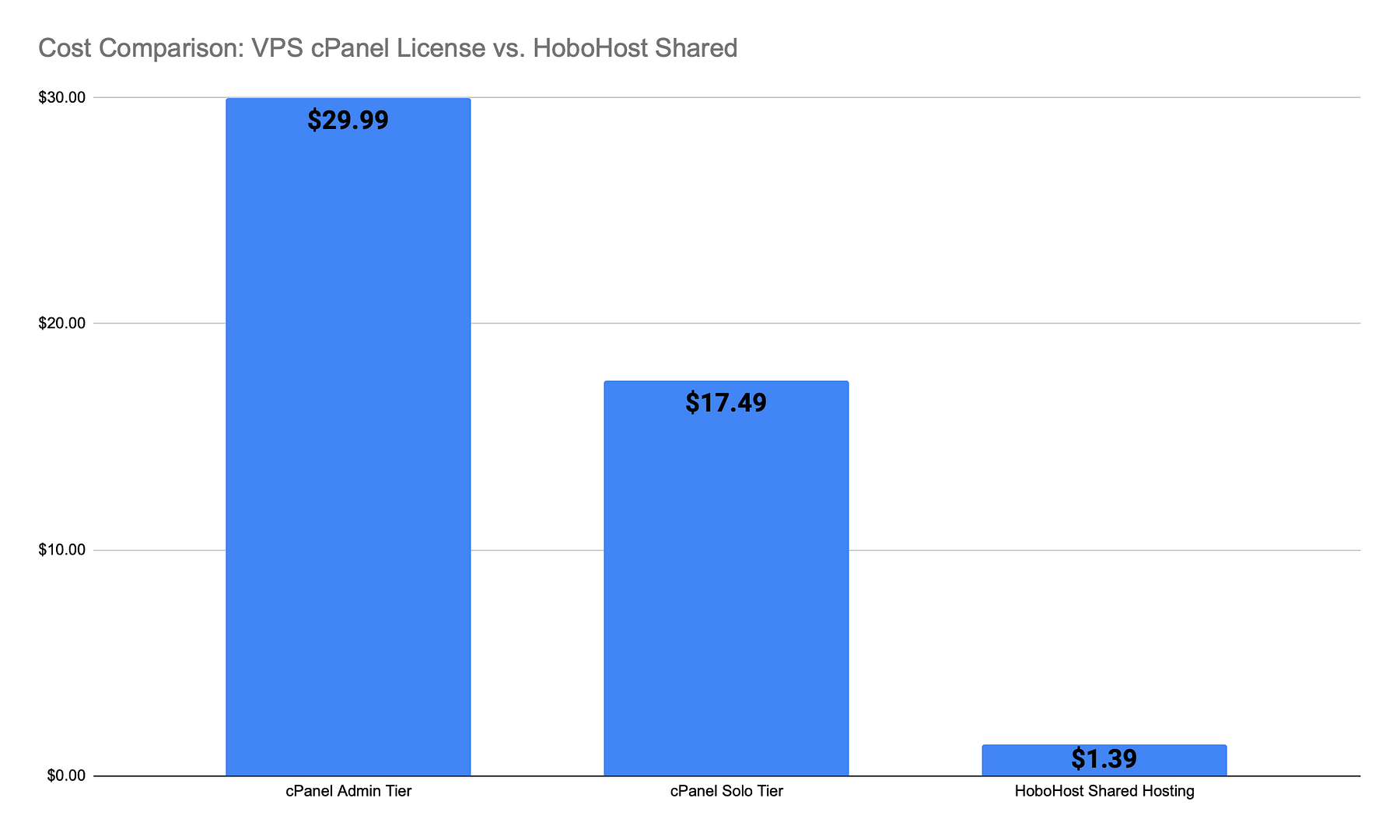One of the most important decisions that a website developer can make is what content management system to use. A CMS is responsible for storing, displaying, and delivering content to its users. It determines how users can create, edit, and publish their content on your site.
The best CMSs can be customized to meet your needs, integrate with other services you may use, and make it easy for developers to build new features. There are many different CMSs available, each with its features, pros, and cons.
1. WordPress
WordPress is one of the best CMS for programmers in use today. It is known for its ease of use and flexibility, making it a good choice for small and large websites. WordPress can be used to create simple blogs or feature-rich websites. Developers can extend its functionality by using plugins or creating their themes. However, for optimum functionality of any CMS system, you should use the best web hosting service provider.
Pros:
- It’s an accessible software
- Plugin and theme marketplace make it easy to find add-ons
- Easy to use as a blog or create a more complex website
Cons:
- WordPress is not very secure – it has a high vulnerability score on the website. This means that it’s relatively easy to hack WordPress sites, so you need additional security measures such as regular software updates.
- Requires numerous plugins to be operational, which can be expensive
- A large number of plugins can make updates challenging to implement. Not all plugins are created equal; some come with serious security flaws. Developers need to keep WordPress up-to-date by regularly installing theme and plugin updates.
2. Drupal
Drupal is a mature and robust CMS used by many high-traffic websites like The Economist, NBC News, Stanford University. Drupal has an active development community that releases updates regularly. This means it stays secure and bug-free, making it more reliable than other open-source alternatives like WordPress.
Pros:
- Stable content management system with regular updates
- Mature content management system with an active development community
- Offers multilingual support. It’s available in 90 languages
- Provides an extensive database of themes and plugins
- It’s open-source software that anyone can download or us
Cons:
- Slow performance compared to WordPress or Joomla because it uses flat-file databases rather than object-relational mappers (ORM).
- It can be overwhelming for first-time users. It requires additional training and support because of its complex configuration.
3. Joomla
Joomla is a flexible and extensible CMS that offers built-in features such as photo galleries, calendars, news publishing. Joomla’s user interface has been translated into more than 70 languages, making it easier for non-English speakers to use the system.
Pros:
- Offers multilingual support
- Integrates well with some versions of SQL
- Offers good third party support
- Offers frequent security updates
Cons:
- It also requires additional hardware to handle large volumes of traffic.
- It is not SEO friendly
- Some plugins need modification to be compatible
4. Shopify
Shopify is used mainly for eCommerce. It is a hosted platform that offers everything you need to start and run an online store, including hosting, design templates, payment processing, and more.
Pros:
- A hosted platform, so no need for additional hardware or software
- Ease of use – drag and drop interface makes it easy to create your store
- Offers built-in payment system that allows users with third-party apps
- Helps in inventory tracking
- Provides customizable templates
Cons:
- Only suitable for eCommerce stores
- Monthly subscription fee
- Limited design options
- You can’t change the underlying code, which means you’re limited to the design templates provided by Shopify.
- Shopify is more expensive than other eCommerce platforms. You need to pay a monthly subscription fee in addition to payment processing fees.
- Does not offer phone support – only email and chat support.
5. Tumblr
Tumblr is a microblogging platform that allows users to post short text, photos, videos, and links. It is popular with young people because it’s easy to use and has a fast turnaround time for publishing content. Also, it integrates well with other social media platforms.
Pros:
- Easy to use – no prior knowledge or design skills required
- Fast turnaround time for publishing content
- Integrates well with other social media platforms
Cons:
- Limited features compared to other CMSs such as WordPress and Drupal. For example, you can’t create pages or run eCommerce stores.
- Limited customization options
- Not suitable for complex websites.
6. WooCommerce
WooCommerce is an open-source eCommerce solution that runs on WordPress. It provides all the tools you need to start selling products online, including customizable templates, payment processing, inventory management, etc. which makes it one of the best cms for website development.
Pros:
- Offers multilingual support with 80+ language translations available for free
- Ease of use – drag and drop interface makes it easy to create your store
- Integrates well with WordPress making it a good choice for existing WordPress websites
- It offers a wide range of features such as payment processing, inventory management, and more
Cons:
- Requires additional WooCommerce plugins for specific features, which can be tricky to set up.
- Not suitable for stores that need to handle a high volume of traffic.
- Some features are only available for premium users.
- No phone support – only email and chat support.
7. Squarespace
Squarespace is a website builder that allows users to create and manage their websites without coding skills. It offers a wide range of templates, design options, and eCommerce features.
Pros:
- Build-in blogging that is SEO-friendly
- No coding skills required
- Ecommerce features are easy to use and include everything you need to start selling products online
- Wide range of templates and design options
- Integrates e-commerce features such as payment system available
Cons:
- Only suitable for small to medium-sized websites – not suitable for complex or large websites.
- Monthly subscription fee
- Limited features compared to other website builders such as WordPress and Drupal. For example, you can’t create pages or run eCommerce stores.
- Only suitable for people who want to build a simple website – more complex websites may require additional customization that SquareSpace can’t provide.
- Some features are only available for premium users.
- Limited integrations with other platforms.
8. Wix
Wix is one of the best CMS for developers. It is a website builder and an all-in-one CMS system. It offers a wide range of templates, design options, and eCommerce features. It integrates well with other applications like Google Analytics and Facebook.
Pros:
- Easy to use
- It has a good selection of templates and comes at an affordable price.
- Easy to learn – no coding required
- A wide range of templates and design options is available for free.
- Integrates well with Google analytics making it easier for marketers in understanding how users interact with their website content
- Integrates nicely into Facebook ads which makes it easier for advertisers
- Integrates e-commerce features such as payment processing systems
- Offers domain, web hosting, and email services
- Offers 24/7 customer support
Cons:
- It feels very corporate/old-school UI consistent throughout all pages.
- It has lots of pop-ups that can get annoying.
- The monthly subscription fee gets more expensive depending on your package level. The lowest plan starts at $12 per month. Unlimited plans start from $16 per month if billed monthly. If paid annually, users receive a discount rate starting at $15 per month instead of their first year, making it very difficult to compare Wix with other CMSs with a flat-fee model.
- Some features are only available for premium users.
- Limited integrations with other platforms.
- Not suitable for complex websites or stores.
9. Magento
Magento is an open-source eCommerce platform that allows users to create and manage online stores. It offers a wide range of features, including payment processing, inventory management, and more. Small businesses use it for its low cost, while large businesses use it for scalability.
Pros:
- Low cost and scalable – suitable for small to large businesses or companies looking to grow their online presence over time.
- A wide range of features available such as payment processing, inventory management, etc., makes it easy to manage products and orders from a single platform.
- Themes are customizable, which allows you to adjust your website’s look and feel without worrying about coding.
- It’s an open-source software
Cons:
- Users with basic needs such as starting an online store may find the fee model expensive. For example, Magento charges transaction fees for both credit card payment processing and PayPal transactions which can add up over time.
- Only suitable for eCommerce websites – not ideal if you want to build a simple website
- The quarterly fee for hosting makes it difficult to compare Magento with other CMSs that offer free hosting. For example, Squarespace offers unlimited page views and bandwidth, which is perfect for marketers who want to share their content across social networks such as Facebook or Twitter without worrying about hitting limits in the near future.
10. BigCommerce
BigCommerce offers a wide range of features for small to medium-sized businesses, including payment processing, inventory management, and more. It is also open-source software that developers can contribute to the codebase.
Pros:
- A wide range of features are available
- Themes are customizable, which allows you to adjust your website’s look and feel without worrying about coding.
- Allows native blogging, which targets relevant customers
- It’s an open-source software
- Offers shipping support services
- Allows users to sell products from other websites such as eBay and Amazon
Cons:
- Limited annual sales – you cannot sell beyond a specific set amount of sales
- Only suitable for businesses – not suitable if you want to build a simple website
11. Weebly
Weebly offers a wide range of templates, design options, and integrations, making it one of the best cms for web developers. It was developed in 2006 and is now used by over 30 million people. Weebly needs an excellent web hosting company to work efficiently.
Pros:
- A wide range of templates, design options, and integrations makes it perfect for small businesses or bloggers.
- The drag-and-drop interface makes it easy to create a website without any coding required.
- Offers e-commerce features such as payment processing and inventory management
- Integrates with Google Analytics which allows you to monitor your website’s performance
- Allows for monitoring and managing your website’s ads
Cons:
- The monthly subscription fee gets more expensive depending on the package level. The lowest plan starts at $12 per month. Unlimited plans start from $16 per month if billed monthly.
- Only suitable for small businesses – not suitable if you want to build something large or complex like an online store
- Limited integrations with other platforms. This makes it difficult to connect your website with social media channels such as Facebook and Twitter without purchasing additional plugins.
12. OpenCart
OpenCart is a PHP -based online store. It is a great platform for anyone who wants to sell products or services with an easy-to-use interface and quick setup time. It has an intuitive UI that allows for easy navigation. Besides, it offers many valuable features such as social login, native advertising, and advanced SEO that help engage customers.
Pros:
- Offers e-commerce features such as payment processing and inventory management
- It has a wide range of extensions that allow you to customize the website’s look and feel without any coding required.
- Open-source software
- It’s easy to start and operate
- Offers numerous free themes, modules, and extensions.
Cons:
- It can be difficult to set up – you need some coding knowledge to get it working correctly.
- It does not offer any customer support, meaning that you will have to find a workaround yourself or hire a developer if you encounter any problems.
- An increase in web traffic slows down its operations
13. Craft
Craft is a CMS that was designed for developers. It offers an easy-to-use interface and allows you to create custom themes without any coding required.
Pros:
- Offers e-commerce features such as payment processing and inventory management
- Allows you to use your domain name – no need for a subdomain like with other CMSs
- You can create custom themes without any coding required
- It’s open-source software which means that developers can contribute to the codebase
Cons:
- Not suitable for businesses who want a simple website – Crafty is designed for developers, so it may not be easy to use if you are not familiar with coding languages.
- No support options are available
What is the best CMS for website development depends on what you are looking for in a CMS. If you want something easy to use with no coding required, then Weebly or Wix would be good choices.
However, if you are looking for something more sophisticated that offers many features and customizations, then OpenCart or Magento would be better options. People who prefer CMS for selling products would find Shopify more useful.
CMSs perform better on good web hosts. Get cheap web hosting with a HoboHost package!




